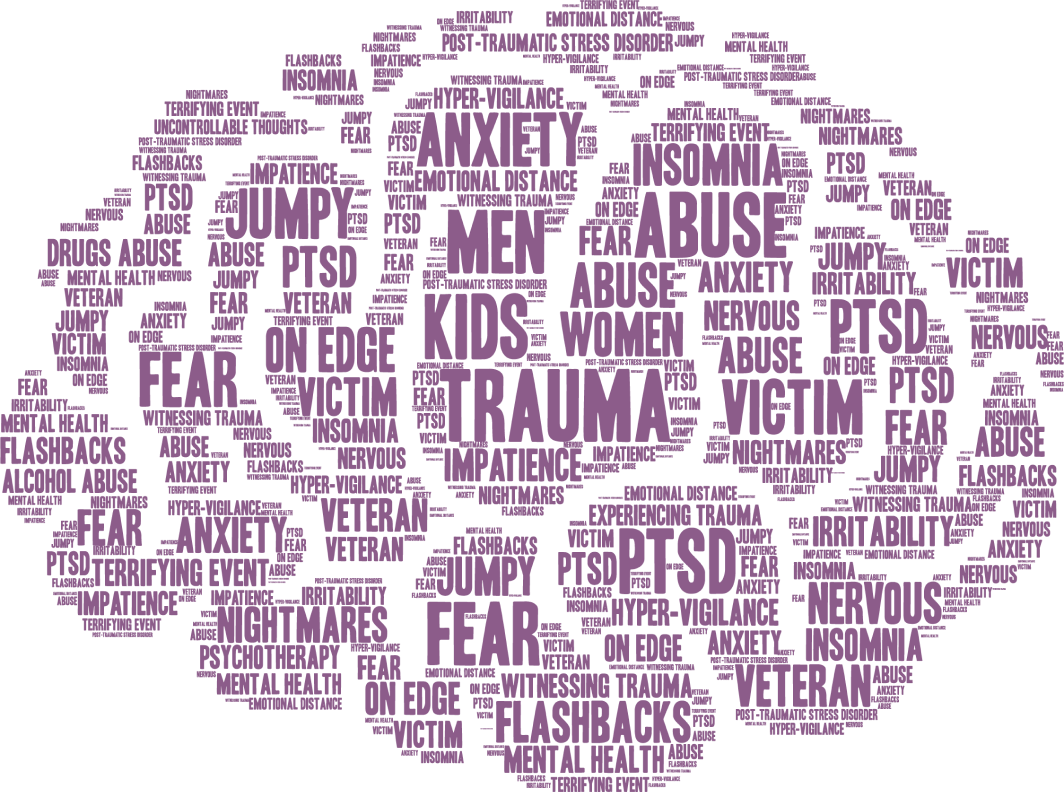NEXUS 2025 SPOTLIGHT:
Racism's Irrefutable Harms
How racial trauma IS THOUGHT to impact the brain for generations
Get a concise summary of the main themes and key findings. Perfect for a quick read.
Dive deep into the research for a comprehensive understanding of the science.
KEY REPORT FINDINGS

Racial discrimination causes structural and functional changes in the brain2
Studies reveal that racial discrimination is associated with changes in brain structure and function, particularly impacting regions like the cingulate cortex, amygdala, and white matter. People who frequently experience racial discrimination may have thinning of the cingulate cortex and changes in the amygdala, which are involved in how the brain handles emotions and thinking.3 These changes may make it harder to focus, learn, and manage stress, similar to what is observed in conditions like post-traumatic stress disorder (PTSD), depression, and anxiety.4 Additionally, racial discrimination is linked to weakened structure in white matter tracts, such as the corpus callosum and cingulum bundle, which are crucial for communication across the brain. This weakening may increase the risk of mental health issues and disorders like Alzheimer’s disease, which affects Black and Hispanic people more.

The intergenerational impact of racial trauma is biologically imprinted5-8
The effects of racial trauma may be passed down through generations. Racial trauma can lead to changes in DNA, known as epigenetic changes, such as DNA methylation, which can affects how genes work without altering the DNA sequence itself. These changes, triggered by racial discrimination, may alter stress responses and may be inherited, perpetuating mental health disparities. For example, pregnant women facing racial discrimination may experience changes in DNA methylation related to stress-regulatory genes, which could affect their developing fetuses. This may increase risks for fetal growth restriction, low birth weight, and preterm birth. Elevated cortisol levels during pregnancy, resulting from chronic stress related to racial discrimination, may disrupt fetal development and lead to long-term mental and brain health challenges, thereby worstening existing health inequities in mothers and children.

Significant research gaps exist in understanding racial trauma’s impact on mental health4,9-11
Though awareness of how racial trauma affects mental health is increasing, there’s still a lot for us to learn. By conducting more research, especially related to racial trauma and its effect on mental health inequities, we can deepen our understanding. To that end, it is important to include diverse participants in studies so that we may possibly close these knowledge gaps and enhance mental health outcomes for historically underserved communities.
Comprehensive strategies are essential for advancing health equity9,11-13
Comprehensive, sustainable strategies are needed to address the mental health impacts of racial trauma. This report highlights several key health equity strategies, including diversifying clinical trials, creating and enforcing anti-racism policies within health care systems, increasing workforce diversity, and improving cultural competence in patient care through cultural humility training. Additionally, it calls for prioritizing community partnerships to better engage historically underserved populations, expanding mental health services in marginalized communities, and integrating trauma-informed care models. These steps are imperative for addressing the root causes of mental health disparities and fostering long-term, equitable neuropsychiatric care that benefits current and future generations.

Explore the full report for an in-depth understanding of the profound effects of racism on mental health and brain function, and discover practical strategies to drive meaningful change across generations
-
References:
1.American Medical Association (AMA). Advancing health equity: A guide to language, narrative, and concepts. 2021. AMA. Accessed October 14, 2024. https://www.ama-assn.org/about/ama-center-health-equity/advancing-health-equity-guide-language-narrative-and-concepts-0.
-
2.
Fani N, Harnett NG, Bradley B, et al. Racial discrimination and white matter microstructure in trauma-exposed Black women. Biol Psychiatry. 2022;91(3):254-261. doi:10.1016/
j.biopsych.2021.08.011 -
3.
Berger M, Sarnyai Z. “More than skin deep”: Stress neurobiology and mental health consequences of racial discrimination. Stress. 2015;18(1):1-10. doi:10.3109/
10253890.2014.989204 -
4.
Webb EK, Carter SE, Ressler KJ, Fani N, Harnett NG. The neurophysiological consequences of racism-related stressors in Black Americans. Neurosci Biobehav Rev. 2024;161:105638. doi:10.1016/
J.NEUBIOREV.2024.105638 -
5.
Goosby BJ, Heidbrink C. Transgenerational consequences of discrimination on African‐American health outcomes. Sociol Compass. 2013;7(8):630-643. doi:10.1111/
soc4.12054 -
6.
Thayer ZM, Kuzawa CW. Biological memories of past environments: Epigenetic pathways to health disparities. Epigenetics. 2011;6(7):798-803. doi:10.4161/
epi.6.7.16222 -
7.
Santos HP, Nephew BC, Bhattacharya A, et al. Discrimination exposure and DNA methylation of stress-related genes in Latina mothers. Psychoneuroendocrinology. 2018;98:131-138. doi:10.1016/
J.PSYNEUEN.2018.08.014 -
8.
Conradt E, Carter SE, Crowell SE. Biological embedding of chronic stress across two generations within marginalized communities. Child Dev Perspect. 2020;0(0):1-7. doi:10.1111/
CDEP.12382 -
9.
David EJR, Schroeder TM, Fernandez J. Internalized racism: A systematic review of the psychological literature on racism’s most insidious consequence. Journal of Social Issues. 2019;75(4):1057-1086. doi:10.1111/
josi.12350 -
10.
Gee GC, Spencer MS, Chen J, Takeuchi D. A nationwide study of discrimination and chronic health conditions among asian americans. Am J Public Health. 2007;97(7):1275-1282. doi: 10.2105/
apjh.2006.091827 -
11.
Lazaridou F, Fernando S. Deconstructing institutional racism and the social construction of whiteness: A strategy for professional competence training in culture and migration mental health. Transcult Psychiatry. 2022;59(2):175-187. doi:10.1177/
13634615221087101 -
12.
Banaji MR, Fiske ST, Massey DS. Systemic racism: individuals and interactions, institutions and society. Cogn Res Princ Implic. 2021;6(1):82. doi:10.1186/
s41235-021-00349-3. -
13.
Miller-Kleinhenz JM, Kuzmishin Nagy AB, Majewska AA, Adebayo Michael AO, Najmi SM, Nguyen KH, Van Sciver RE, Fonkoue IT. Let's talk about race: changing the conversations around race in academia. Commun Biol. 2021;4(1):902. doi: 10.1038/
s42003-021-02409-2.